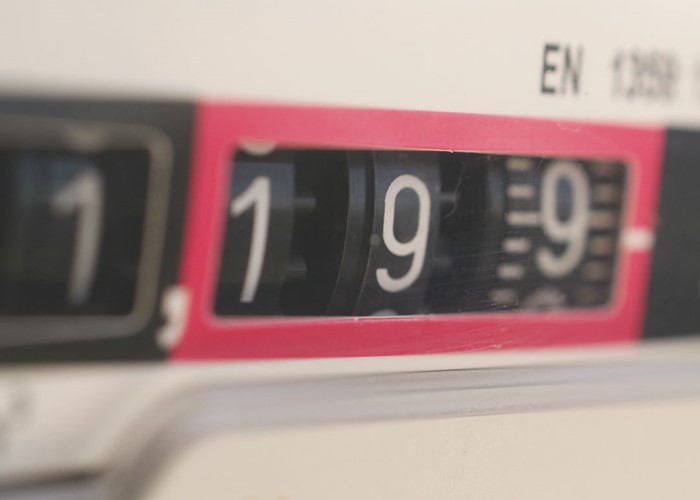How to avoid First Utility’s 18.6% energy price rise

As of today First Utility customers will see their bills jump by more than £250 a year. Whether you're a First Utility customer or not, now's a good time to consider moving to a fixed tariff.
First Utility’s price rise of 18.6% comes into force today.
Back in April the energy provider announced it was scrapping its iSave v12 tariff and moving customers onto more expensive tariffs, such as the iSave Everyday or iSave v15. As a result the average customer will see an extra £264 on their annual bill.
So if you haven’t already, now is the time to start looking around for a new deal. That applies even if you’re not a First Utility customer but haven’t switched in a while.
So where should you look?
Fixing for the long term
One recent trend in energy deals has been the launch of really long fixed tariffs. The advantage of a fixed tariff is very simple – it offers you certainty. You know that for the duration of your deal your bills won’t change.
Yes, you may pay a premium for that certainty, but at least you don’t need to worry about a sudden, sharp bill rise.
Traditionally these tariffs have fixed your bills for a year to 18 months. However, there are now tariffs offering to keep your energy bills stable until 2016!
The longest fixed tariffs
Npower’s Online Price Fix September 2016 will fix your tariff for more than three years, the longest fixed period ever offered by an energy provider. What’s more it has no cancellation penalties, so should the unexpected happen and energy bills get cheaper – don’t laugh, it could happen – then you could leave for a cheaper deal without being charged.
The deal will set the average user back £1,192, a saving of £102 over the average bill. That’s not a massive saving, and can be beaten, but with the Online Price Fix September 2016 you’re gambling that prices will continue to rise, meaning you get a bigger benefit in years two and three.
It’s not the only three-year fixed tariff though. Scottish Power also offers one, with its Fixed Price Energy February 2016 tariff. This isn’t such a great deal though, with an average yearly price of £1,301. You’ll also need to consider the exit penalties – it will cost you £50 to get out of a dual fuel deal.
If three years seems a bit long, then EDF’s Blue+Price Promise February 2015 may appeal, fixing your payments for almost two years. Average consumption will see you with a bill of £1,192, a saving of £228 on the typical bill.
Should I fix?
The consensus among energy experts is that prices are only going to go one way and that’s up. Indeed First Utility claimed last month that energy bills may soon pass mortgage bills, which is a terrifying prospect. You can read more in Energy bills could overtake mortgage repayments by 2025.
As a result, fixing your payments seems a sensible move. That said, the experts have been wrong before so make sure you know just what it will cost you to get out of your fixed deal before you sign on the dotted line.
Below is a table showing the current cheapest fixed tariffs on the market.
|
Supplier |
Tariff |
Average Cost |
Average Saving* |
Notes |
|
npower |
£1,184 |
£236 |
Prices fixed until 31st August 2014. Cancellation fees apply |
|
|
EDF |
£1,192 |
£228 |
Prices fixed until 28th February 2015 |
|
|
First Utility |
£1,225 |
£195 |
Prices fixed until 30th September 2014. Cancellation fees apply |
|
|
ScottishPower |
£1,230 |
£170 |
Prices fixed until 30th September 2014 |
|
|
e.on |
£1,231 |
£189 |
Prices fixed for 12 months |
*based on a typical dual fuel tariff costing £1,420 (Source: Ofgem). All costs are for a yearly average usage dual fuel household paying by monthly direct debit. Average usage defined by Ofgem as 16,500 kWh p.a. of gas and 3,300 kWh p.a. of electricity.
Compare gas and electricity suppliers with Lovemoney
More on gas and electricity
The UK's worst energy provider
The longest fixed rate energy tariff EVER!
Energy bills could overtake mortgage repayments by 2025
Why paying your energy bills by direct debit may not prevent bill shock
Comments
Be the first to comment
Do you want to comment on this article? You need to be signed in for this feature